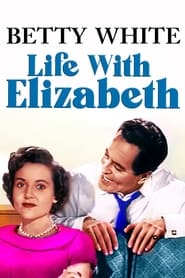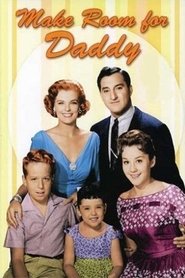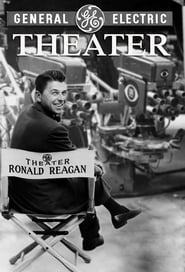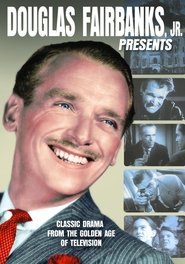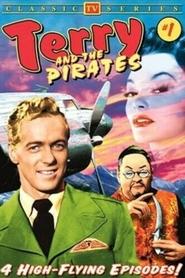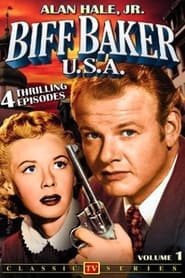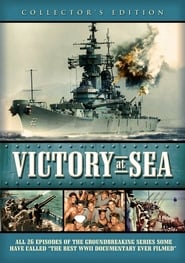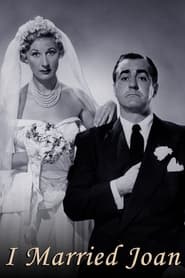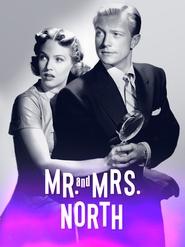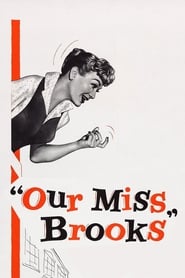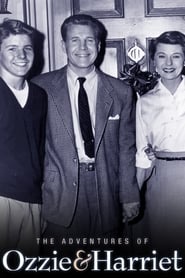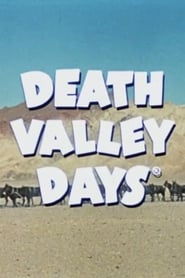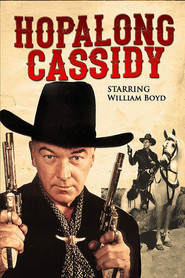New Musical TV Series on Tubi TV - Page 254
-
Life with Elizabeth
1953
Life with Elizabeth
1953
star 4.7Elizabeth and Alvin are a married couple who live an ordinary suburban life, but inevitably managed to get into predicaments. At the end of most predicaments, Alvin, in variable degrees of frustration, would say, "I shall leave you now, Elizabeth" and would walk out of sight. The announcer would say, "Elizabeth, aren't you ashamed?" She would slowly nod, but then, with a slightly devilish grin, would vigorously shake her head to indicate she wasn't. -
The Danny Thomas Show
1953
star 6Danny Thomas, an entertainer, tries to balance his home life with the needs of his career, with hilarious results. -
Letter to Loretta
1953
Letter to Loretta
1953
star 6.5Letter to Loretta is an American anthology drama series telecast on NBC from September 1953 to June 1961 for a total of 165 episodes. The filmed show was hosted by Loretta Young who also played the lead in various episodes. Letter to Loretta was sponsored by Procter & Gamble from 1953 through 1960. The final season's sponsor was Warner-Lambert's Listerine. -
Private Secretary
1953
Private Secretary
1953
star 5Private Secretary is an American sitcom that aired from February 1, 1953 to September 10, 1957 on CBS, alternating with The Jack Benny Program on Sundays at 7:30pm EST. The series stars Ann Sothern as Susan Camille "Susie" MacNamara, devoted secretary to handsome talent agent Peter Sands, played by Don Porter. -
General Electric Theater
1953
star 6.3General Electric Theater is an American anthology series hosted by Ronald Reagan that was broadcast on CBS radio and television. The series was sponsored by General Electric's Department of Public Relations. -
Douglas Fairbanks, Jr., Presents
1953
star 6Douglas Fairbanks, Jr., Presents, is a 1950s syndicated anthology series hosted and occasionally starring Douglas Fairbanks, Jr.. The series offered Buster Keaton in his first dramatic role in the episode entitled "The Awakening". British actor Christopher Lee appeared in varied role in thirteen episodes, including "Destination Milan". The program aired from 7 January 1953 to 11 February 1957 for a total of 117 episodes. Fairbanks himself starred in forty-eight episodes. In Melbourne, Australia the series was aired under the title Chesebrough Ponds Playhouse. -
Name That Tune
1952
Name That Tune
1952
Name That Tune is an American television game show that put two contestants against each other to test their knowledge of songs. Premiering in the United States on NBC Radio in 1952, the show was created and produced by Harry Salter and his wife Roberta. Name That Tune ran from 1953–1959 on NBC and CBS in prime time. The first hosts were Red Benson and later Bill Cullen, but George DeWitt became most identified with the show. Richard Hayes also emceed a local edition from 1970–1971, which ran for 26 weeks in a small number of markets. However, the best-remembered syndicated Name That Tune aired once a week from 1974–1981 with host Tom Kennedy. The series was revived for daily syndication in 1984, and its lone season was hosted by Jim Lange. For the last two of these series, John Harlan served as announcer. The centerpiece of each Name That Tune series was an orchestra, which would play the songs for the contestants to guess. The syndicated series' orchestras were conducted by Bob Alberti, Tommy -
The Abbott and Costello Show
1952
star 7.1Bud and Lou are unemployed actors living in Mr. Fields’ boarding house. Lou’s girlfriend Hillary lives across the hall. Many situations arise leading to slapstick and puns. -
Terry and the Pirates
1952
star 3Terry and the Pirates is a short-lived American adventure series based on Milton Caniff's popular comic strip, was telecast from June 26, 1953 to November 21, 1953. The syndicated series ran for 18 episodes and was produced by Don Sharpe Enterprises. Canada Dry Ginger Ale was the show's original sponsor. -
My Hero
1952
My Hero
1952
-
Biff Baker U.S.A.
1952
Biff Baker U.S.A.
1952
star 7.5Biff Baker, U.S.A. is an American crime drama television series that aired on CBS from November 6, 1952, to March 26, 1953 starring Alan Hale, Jr. as Cold War spy Biff Baker. -
Victory at Sea
1952
Victory at Sea
1952
star 6.5Victory at Sea is a documentary television series about naval warfare during World War II that was originally broadcast by NBC in the USA in 1952–1953. It was condensed into a film in 1954. Excerpts from the music soundtrack, by Richard Rodgers and Robert Russell Bennett, were re-recorded and sold as record albums. The original TV broadcasts comprised 26 half-hour segments—Sunday afternoons at 3pm in most markets—starting October 26, 1952 and ending May 3, 1953. The series, which won an Emmy award in 1954 as "best public affairs program", played an important part in establishing historic "compilation" documentaries as a viable television genre. Over 13,000 hours of footage gathered from US, British, German and Japanese navies during World War II were perused in the making of these compelling episodes. -
I Married Joan
1952
I Married Joan
1952
star 6I Married Joan is an American sitcom that aired on NBC from 1952 to 1955. It starred veteran vaudeville, film, and radio comedienne-comedy actress Joan Davis as the manic, scatterbrained wife of a mild-mannered community judge, the Honorable Bradley Stevens. -
Mr. & Mrs. North
1952
Mr. & Mrs. North
1952
star 4.3Mr. & Mrs. North is an American comedy/mystery television series that aired on CBS from October 3, 1952 to May 25, 1954. The series centers on Jerry North, a mystery magazine publisher who thinks he is a good amateur detective, and his wife, Pamela, as they solve crimes in New York City. -
Our Miss Brooks
1952
Our Miss Brooks
1952
star 7.3Our Miss Brooks is an American situation comedy starring Eve Arden as a sardonic high school English teacher. It began as a radio show broadcast on CBS from 1948 to 1957. When the show was adapted to television, it became one of the medium's earliest hits. In 1956, the sitcom was adapted for big screen in the film of the same name. -
The Adventures of Ozzie and Harriet
1952
star 5.9The Adventures of Ozzie and Harriet is an American sitcom, airing on ABC from October 3, 1952 through March 26, 1966, starring the real life Nelson family. After a long run on radio, the show was brought to television where it continued its success, running on both radio and television for a few years. The series stars Ozzie Nelson and his wife, singer Harriet Nelson, and their young sons, David and Eric "Ricky" Nelson. Don DeFore had a recurring role as the Nelsons' friendly neighbor "Thorny". -
Cavalcade of America
1952
Cavalcade of America
1952
star 3.5Cavalcade of America is an anthology drama series that was sponsored by the DuPont Company, although it occasionally presented a musical, such as an adaptation of Show Boat, and condensed biographies of popular composers. It was initially broadcast on radio from 1935 to 1953, and later on television from 1952 to 1957. Originally on CBS, the series pioneered the use of anthology drama for company audio advertising. Cavalcade of America documented historical events using stories of individual courage, initiative and achievement, often with feel-good dramatizations of the human spirit's triumph against all odds. This was consistent with DuPont's overall conservative philosophy and legacy as an American company dating back to 1802. The company's motto, "Maker of better things for better living through chemistry," was read at the beginning of each program, and the dramas emphasized humanitarian progress, particularly improvements in the lives of women, often through technological innovation. -
Death Valley Days
1952
Death Valley Days
1952
star 6.4Death Valley Days is an American radio and television anthology series featuring true stories of the old American West, particularly the Death Valley area. Created in 1930 by Ruth Woodman, the program was broadcast on radio until 1945 and continued from 1952 to 1970 as a syndicated television series, with reruns continuing through August 1, 1975. The series was sponsored by the Pacific Coast Borax Company and hosted by Stanley Andrews, Ronald Reagan, Robert Taylor, and Dale Robertson. With the passing of Dale Robertson in 2013, all the former Death Valley Days hosts are now deceased. -
Four Star Playhouse
1952
Four Star Playhouse
1952
star 6.3Four Star Playhouse is an American television anthology series that ran from 1952 to 1956, sponsored in its first bi-weekly season by The Singer Company; Bristol-Myers became an alternate sponsor when it became a weekly series in the fall of 1953. The original premise was that Charles Boyer, Ida Lupino, David Niven, and Dick Powell would take turns starring in episodes. However, several other performers took the lead from time to time, including Ronald Colman and Joan Fontaine. Blake Edwards was among the writers and directors who contributed to the series. Edwards created the recurring character of illegal gambling house operator Willie Dante for Dick Powell to play on this series. The character was later revamped and spun off in his own series starring Howard Duff, then-husband of Lupino. The pilot for Meet McGraw, starring Frank Lovejoy, aired here, as did another episode in which Lovejoy recreated his role of Chicago newspaper reporter Randy Stone, from the radio drama Nightbeat. -
Hopalong Cassidy
1952
Hopalong Cassidy
1952
star 5.2Hopalong Cassidy was television's first western program. The series aired on NBC and stared William Boyd as the cowboy Hopalong Cassidy.
 Netflix
Netflix
 Amazon Prime Video
Amazon Prime Video
 Apple iTunes
Apple iTunes
 Apple TV Plus
Apple TV Plus
 Disney Plus
Disney Plus
 Google Play Movies
Google Play Movies
 Paramount Plus
Paramount Plus
 Hulu
Hulu
 HBO Max
HBO Max
 YouTube
YouTube
 fuboTV
fuboTV
 Peacock
Peacock
 Peacock Premium
Peacock Premium
 Amazon Video
Amazon Video
 The Roku Channel
The Roku Channel
 AMC+
AMC+
 Kocowa
Kocowa
 Hoopla
Hoopla
 The CW
The CW
 Vudu
Vudu
 Starz
Starz
 Showtime
Showtime
 PBS
PBS
 Pantaflix
Pantaflix
 FXNow
FXNow
 Tubi TV
Tubi TV
 Kanopy
Kanopy
 Comedy Central
Comedy Central
 Crunchyroll
Crunchyroll
 Microsoft Store
Microsoft Store
 Redbox
Redbox
 Sun Nxt
Sun Nxt
 ABC
ABC
 DIRECTV
DIRECTV
 Crackle
Crackle
 Fandor
Fandor
 Plex
Plex
